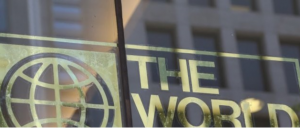The organization believes that the Belt and Road Initiative (BRI) is an ambitious effort to improve regional cooperation and connectivity on a trans-continental scale.
The BRI is expected to improve transportation infrastructure and economic environment, thereby substantially lowering trade costs, promoting cross-border trade and investment, and boosting growth for Belt and Road countries, regions and even the whole world at large, the World Bank said.
Michele Ruta, lead economist in the Macroeconomics, Trade and Investment Global Practice of the World Bank Group, believes that the BRI regional cooperation will enhance transportation infrastructure such as railways, promote rapid growth of cross-border trade and investment, and drive the economy.
According to the first-ever quantification of the influence of the Belt and Road construction on trade costs conducted by Ruta and his research team, for Belt and Road economies, the BRI transportation projects, either completed or under construction, can cut shipment time for Belt and Road economies by an average of 1.7-3.2%. For the world, the average reduction in shipment time will range between 1.2-2.5%.
China carries out co-operation with other countries on building highways, railways and ports following the principles of extensive consultation, joint contribution and shared benefits.
Read more HERE
Ask me anything
Explore related questions





